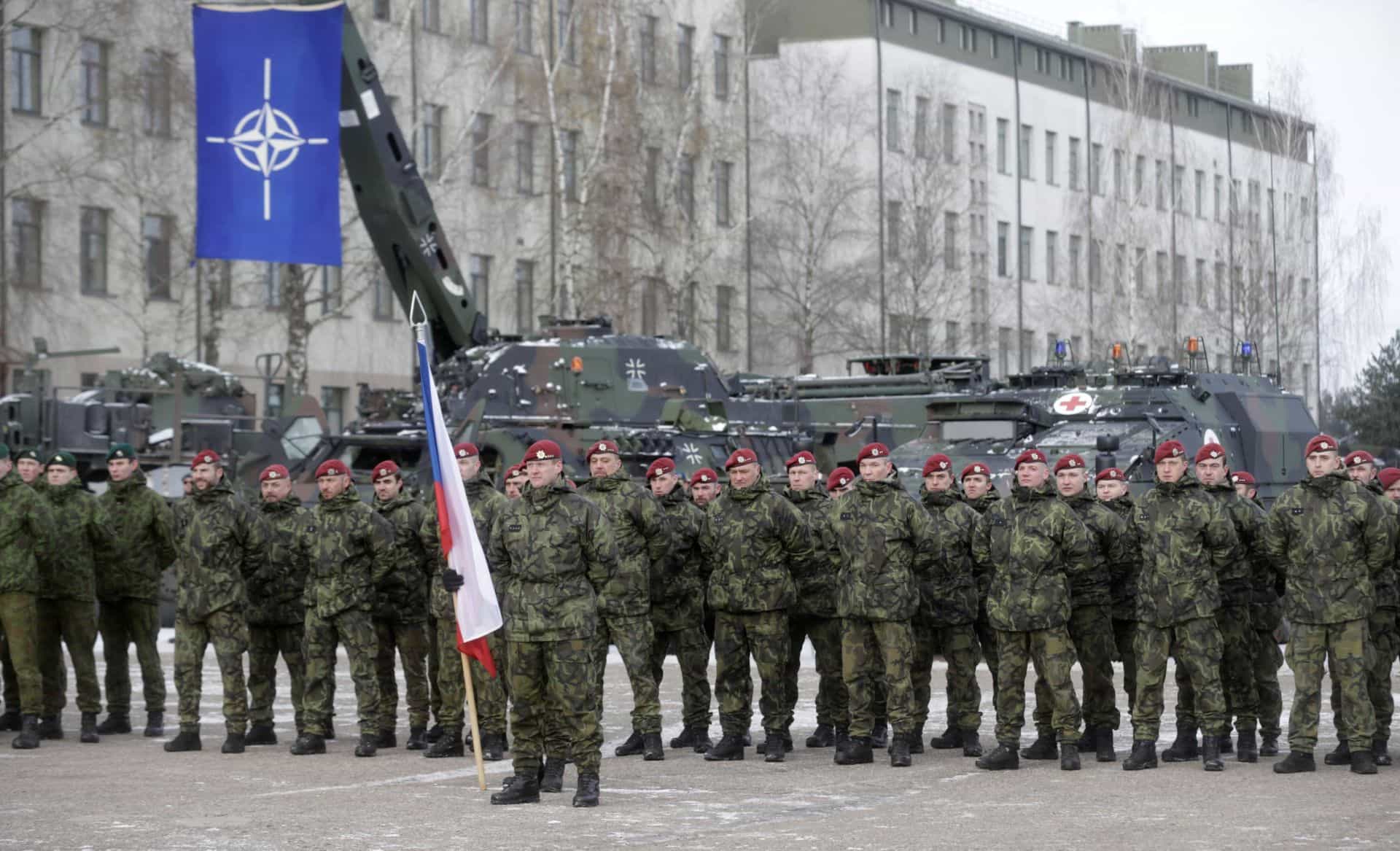NATO Defence Ministers wrapped up two days of talks in Brussels on Thursday (16 February 2017), focused on the Alliance’s adaptation to a more demanding security environment.
On Wednesday, Ministers discussed NATO’s role in the fight against terrorism and agreed to create a new regional Hub for the South, based at NATO’s Joint Force Command in Naples. The Hub will assess and address threats from the Middle East and North Africa, engaging with partner nations and organisations.
Ministers also addressed NATO’s Joint Intelligence, Surveillance and Reconnaissance capability and agreed to develop a follow-on capability for NATO AWACS planes after they retire around the year 2035. This will help the Alliance tackle challenges from the South, and anticipate crises.
Secretary General Jens Stoltenberg stressed that NATO’s continuous adaptation requires fairer burden-sharing among Allies. He noted that, after many years of cuts, defence spending in 2016 increased in real terms by 3.8% among European Allies and Canada. “It amounts to roughly 10 billion dollars more for our defence. This makes a difference, but it is absolutely vital that we keep up the momentum,” he added.
On Thursday, Allies agreed on the next steps to modernise the NATO Command Structure and reviewed progress on the deployment of new deterrent forces in Estonia, Latvia, Lithuania and Poland. The Secretary General stressed that these deployments are defensive and measured, saying “our aim is to prevent conflict, not to provoke it.” Allies also took steps to enhance NATO’s presence in the region, with more maritime training, exercises and situational awareness.
In a ministerial meeting of the NATO-Georgia Commission, Ministers praised Georgia’s defence reforms. Mr. Stoltenberg noted that Georgia is making good progress, and NATO will continue to help Georgia advance on its path towards membership.
Multinational Special Forces Command
Three NATO Allies are strengthening their defence cooperation, with a new agreement to explore the creation of a multinational command for Special Operations Forces, intended to begin its work in 2019. The Defence Ministers of Belgium, Denmark and the Netherlands signed the agreement on Thursday (16 February 2017) in the margins of the meetings of NATO Defence Ministers in Brussels. This multinational command will be able to lead and coordinate Special Operations Forces task groups within a small joint operation scenario.
During a signing ceremony, NATO Deputy Secretary General Rose Gottemoeller welcomed the initiative as timely and valuable. “This tri-national effort reflects the reality that Special Operations Forces today operate increasingly in a multinational context,” she said. “The ability to command our Special Forces effectively is as important as the forces themselves, and NATO has made it a priority”, Ms. Gottemoeller added.
The new command will be developed in line with NATO standards, leveraging the expertise of NATO’s Special Operations Headquarters in Mons, Belgium. While primarily intended for NATO operations, the command could support United Nations and other multinational operations.










